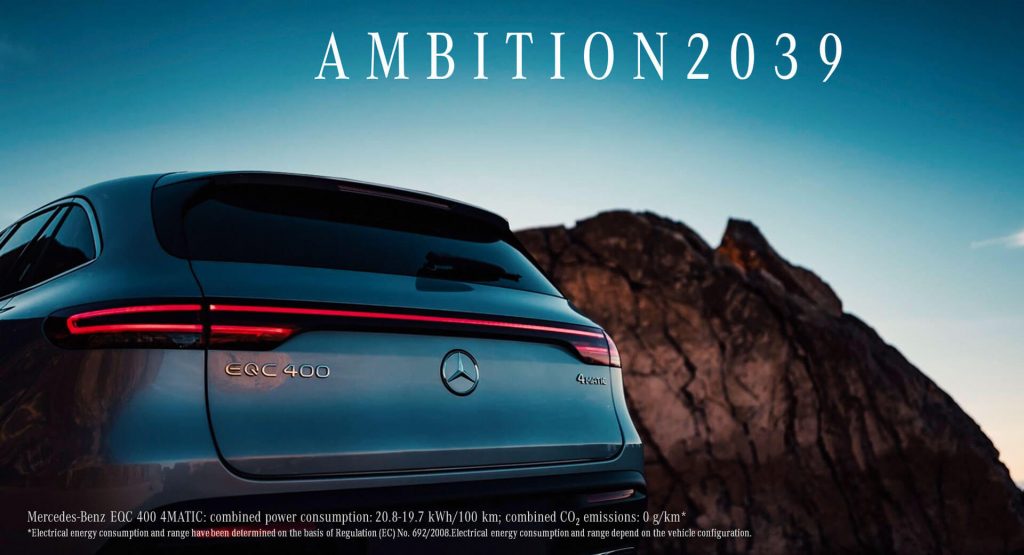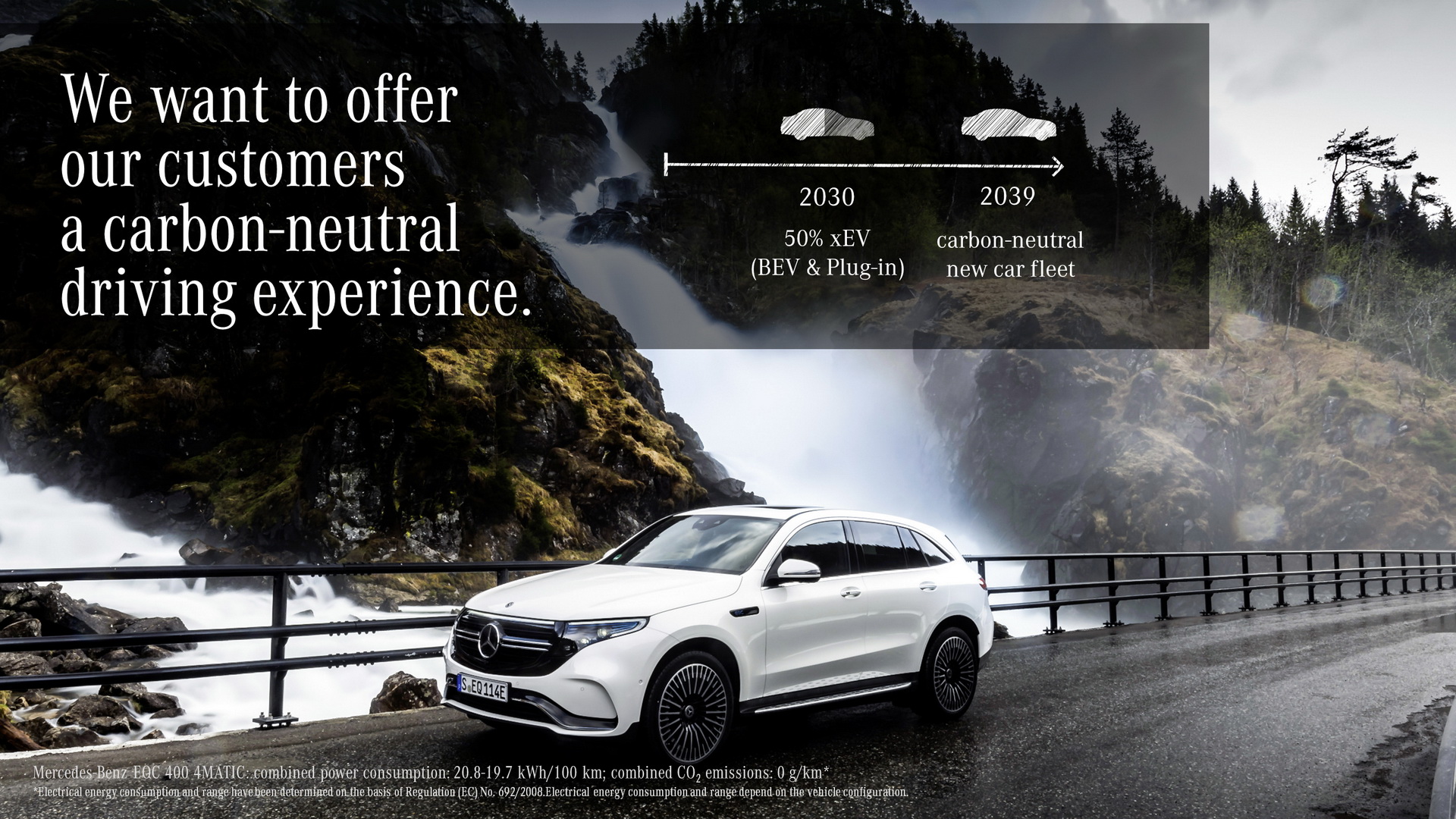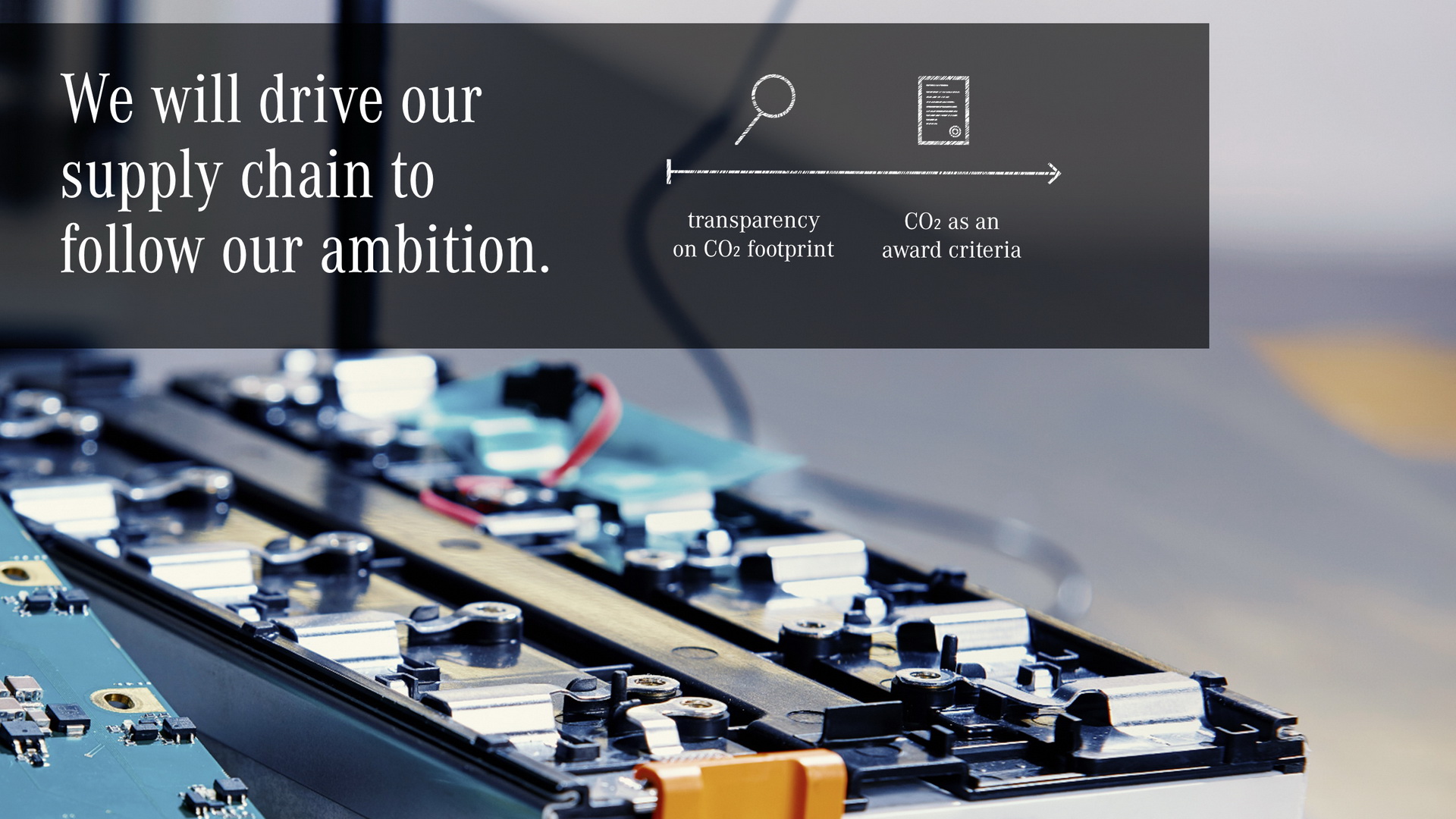Carbon dioxide emissions are a very delicate topic in the automotive industry, and every big player knows this. But they’re not just talking about cutting down on CO2 emissions – they’re actually taking measures to do so, with the top goal being complete carbon-neutrality or zero-emissions.
Mercedes-Benz’s Passenger Car Division will go carbon-neutral over the next 20 years. They made the announcement during a press event, where they revealed the ‘Ambition2039’ plan. The first move will be to have more than half of the new cars on sale with electric or plug-in hybrid powertrains by 2030, followed by complete carbon neutrality by 2039.
Also Watch: Jay Leno Drives Mercedes EQC, Learns Pricing Will Be Similar To GLC 43
“Let’s be clear what this means for us: a fundamental transformation of our company within less than three product cycles”, said Ola Kallenius, Member of the Board of Management at Daimler responsible for Group Research and Mercedes-Benz Cars Development. “That’s not much time when you consider that fossil fuels have dominated our business since the invention of the car by Carl Benz and Gottlieb Daimler some 130 years ago. But as a company founded by engineers, we believe technology can also help to engineer a better future.”
The German automaker will also electrify their vans, trucks and buses. Their main focus is on battery-electric mobility, but since it’s uncertain what drivetrain mix will best serve customers in 20 years’ time, they won’t give up on alternative fuels either. Thus, hydrogen-powered vehicles, like the GLC F-Cell, will continue to evolve and the technology will eventually find its way into their city buses.
Mercedes is not only encouraging the development of green cars, but they want to do so by using green energy. To that end, the Sindelfingen plant already uses renewable energy and all of the company’s European factories will follow suit by 2022. Suppliers will eventually have to comply with carbon-neutrality as well.
“This transformation is a huge challenge – technologically and financially. After all, we want to make sustainable mobility even more exciting, not more expensive”, added Kallenius. “And of course this is also about sustainable business results. How do we deal with this? One way would be to shy away and just try to safeguard the status quo. But that would not serve our purpose – and certainly not our future. So, we prefer doing what our founders have done: They became system architects of a new mobility without horses. Today, our task is individual mobility without emissions.”
Last, but most definitely not least: carbon-neutrality doesn’t spell the death out of internal combustion engines, at least not in the foreseeable future, and not as far as performance cars, such as those developed by AMG, are concerned. After all, Merc’s performance brand has always announced that it will use electric turbochargers in its future cars as an efficient means of eliminating turbo lag – and more “green” tech will probably follow in the future.






